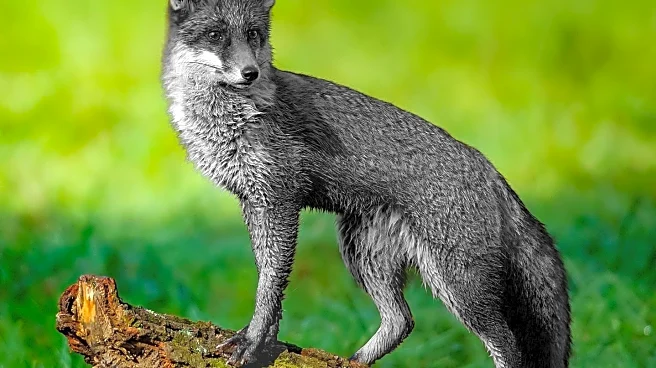What is the story about?
What's Happening?
The animal rights activist movement is currently engaged in a debate over the culling of foxes to protect ground-nesting birds, such as the curlew. The curlew population in Britain has declined by 60% over the past 25 years, largely due to predation by foxes and crows, which have increased in number due to human management of the countryside. Conservationists argue that predator control may be necessary to save these birds, while others believe that the issue stems from mismanagement of the environment and that lethal control is not a sustainable solution. The debate highlights the complex interplay between wildlife management and conservation efforts.
Why It's Important?
This debate is significant as it touches on broader ethical and environmental questions regarding human intervention in wildlife management. The potential culling of foxes raises concerns about the balance between preserving biodiversity and managing predator populations. It also reflects the challenges faced by conservationists in addressing the decline of species due to human activities. The outcome of this debate could influence future conservation policies and practices, impacting both wildlife and agricultural stakeholders. The decision to implement predator control measures could set a precedent for how similar issues are handled in the future.
What's Next?
The next steps in this debate may involve further discussions among conservationists, policymakers, and animal rights groups to determine the most effective and ethical approach to protecting ground-nesting birds. Stakeholders may explore alternative non-lethal methods of predator control or consider habitat restoration efforts to address the root causes of bird population decline. The decision-making process will likely involve scientific research and public consultation to ensure that any actions taken are based on robust evidence and align with societal values.
Beyond the Headlines
The debate over fox culling also raises questions about the long-term sustainability of current agricultural practices and their impact on wildlife. It highlights the need for a holistic approach to countryside management that considers the interconnectedness of ecosystems. Ethical considerations regarding the value of different species and the role of humans in managing wildlife populations are central to this discussion. The movement may also influence public perception of conservation efforts and the importance of preserving biodiversity.
















